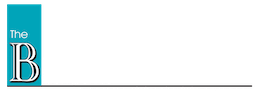327 Questions to Ask Before You Sign a Lease
Lurking inside almost every commercial lease are loopholes, traps and outright mistakes. Buried among the legal rights and obligations are hidden costs, major ambiguities, unreasonable risks, and dozens of issues that were never discussed. 327 Questions to Ask Before You Sign a Lease is designed to help tenants find their way through that maze of small print and legalisms.
A lease is a very complex document that often contains hundreds of small agreements. When you are negotiating a new lease use this booklet as a checklist to find costly loopholes and uncover potential problems.
You can also use it as the basis for reviewing your existing leases. An audit can expose thousands of dollars in overcharges for operating expenses, tax assessments, errors in calculating CPI adjustments, security deposit interest, and lots more.
Landlords are in the business of leasing space, and are highly creative in finding ways to maximize their cash flow. Far before any negotiations ever begin, they have calculated every angle. They have done it, with help from: asset managers, attorneys, financial analyst, property managers, real estate brokers, risk managers, architects, space planners, engineers, and contractors.
On the other hand, tenants often take the do-it-yourself approach. Despite their business success and expertise, they are often in foreign territory and outnumbered when it comes to negotiating a lease. During the past 20 years, I’ve seen countless number of tenants pay far too much rent and expose themselves to a variety of unnecessary risks. And most of them never knew it. What’s worse is that they often did it to themselves. A commercial real estate lease often represents a firm’s largest payroll. A firm’s facilities can have a major impact on earnings for many years from both the standpoint of direct cost and employee productivity.
Yet, focusing solely on a lease’s boiler plate can blind you to other critical issues that can have a negative impact on your business. Therefore, it is important to have a competent professional team at your side throughout the process.
Using a checklist may seem simplistic. Yet, it is an effective tool for making sure nothing is overlooked and preventing trouble before it happens to you.
B. Alan Whitson, RPA
Newport Beach, California
Joseph W. Brady, CCIM, SIOR, President
Victorville, California
